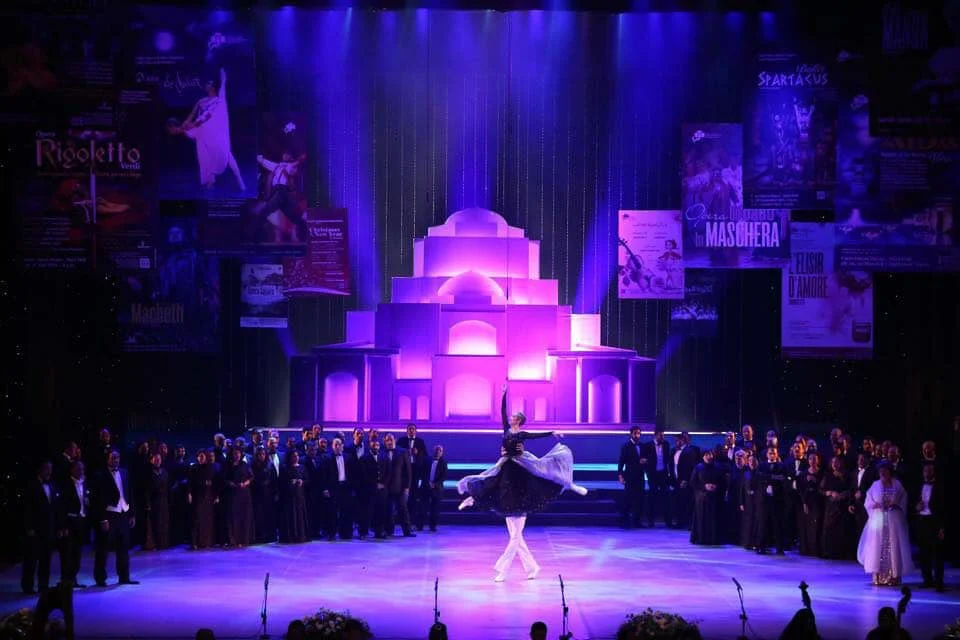Cairo, a city that bridges the ancient and the modern, is a vibrant tapestry of history, culture, and artistic expression. As the capital of Egypt, it stands as a beacon of creativity, attracting artists, musicians, filmmakers, and enthusiasts globally. The city’s cultural venues reflect its rich heritage and contemporary pulse, from the majestic city of the Cairo Opera House to the lively beats at local jazz clubs. This guide explores some of Cairo’s most recognized cultural spaces devoted to music, art, film, and folklore. Every venue offers a special experience and plays a crucial role in preserving and encouthe diverse artistic traditions that thrive in this enchanting metropolis. Whether you are a lifelong resident or a curious traveler, these cultural gems invite you to dig yourself in the heart of Cairo’s artistic soul.
Table of Contents
Toggle1. The Cairo Opera House
The Cairo Opera House, in the heart of Cairo, Egypt, is a prominent cultural institution celebrated for its architectural elegance and vibrant artistic offerings. The original opera house was inaugurated in 1869 to celebrate the opening of the Suez Canal but was tragically destroyed by fire in 1971. The current structure, designed by Egyptian architect Mohammed Awad, was inaugurated in 1988 and features a modern architectural style with traditional Egyptian motifs.
The Cairo Opera House is home to various venues, including the Main Hall, which seats approximately 1,200 people, along with smaller halls and galleries. It hosts various performances, including opera, ballet, concerts, and theatrical productions, and serves as the home of the Cairo Opera Company and the Cairo Ballet Company. As a cultural hub, it emphasizes local and international artists and fosters cultural exchange.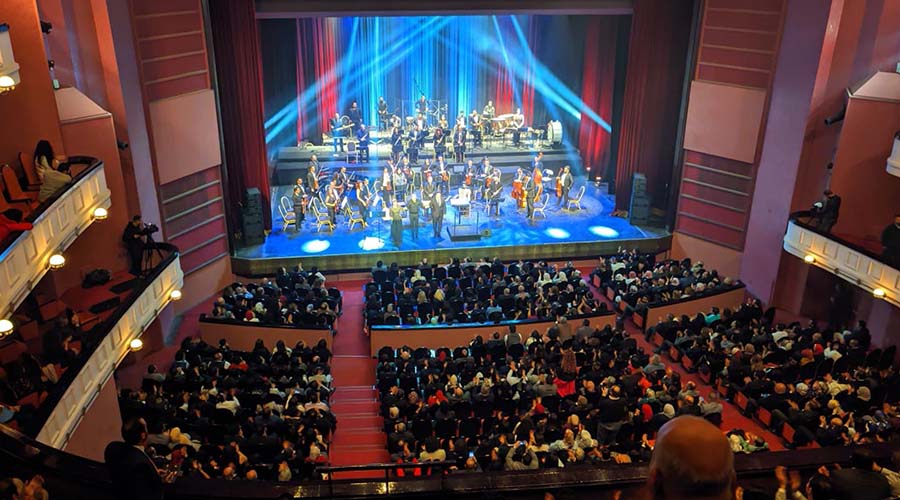
- History: Opened in 1988, the Cairo Opera House symbolizes Egypt’s cultural revival. It was built to replace the original opera house, destroyed by fire in 1971.
- Location: Zamalek, Cairo.
- Specialty: Home to the Cairo Opera Company, the venue hosts various performances, including opera, ballet, concerts, and symphonic music.
- Contact Information:
- Phone: +20 2 2739 0120
- Website: cairooperahouse.gov.eg
2. The Museum of Islamic Art
The Museum of Islamic Art in Cairo, Egypt, is one of the most significant museums dedicated to Islamic art and culture. Established in 1881, it showcases an extensive collection of artifacts covering over 1,400 years of Islamic history. The museum’s architecture is a remarkable example of Islamic design, featuring a blend of traditional and modern elements.
The museum houses over 100,000 artifacts, including textiles, ceramics, metalwork, glass, and woodwork, representing various Islamic civilizations across the Middle East, North Africa, and beyond. Notable pieces include exquisite manuscripts, intricate calligraphy, and beautifully crafted decorative objects, reflecting the rich artistic heritage of the Islamic world.
In addition to its permanent collection, the Museum of Islamic Art hosts temporary exhibitions, educational programs, and cultural events that promote understanding and appreciation of Islamic art. Its strategic location near the Nile River makes it an important cultural landmark in Cairo, attracting both locals and international visitors. Overall, the museum serves as a vital resource for preserving and displaying the diverse artistic traditions of Islamic culture.
- History: Established in 1880, this museum showcases one of the world’s most significant collections of Islamic art, which dates back over 1,400 years.
- Location: Bab El-Khalq, Cairo.
- Specialty: The museum houses artifacts from across the Islamic world, including ceramics, textiles, and metalwork, reflecting the diversity of Islamic culture.
- Contact Information:
- Phone: +20 2 2361 1401
- Website: museumislamicart.com
3. The American University in Cairo (AUC)
The American University in Cairo (AUC) is a prestigious private university in Cairo, Egypt. Established in 1919, it has played a significant role in shaping higher education in the Arab world. AUC offers a liberal arts education focusing on developing critical thinking, creativity, and leadership skills among its students.
AUC is famous for its dedication to research, with various centers and institutes devoted to addressing regional and global issues. The campus has modern facilities, including state-of-the-art classrooms, libraries, research centers, and cultural spaces for exhibitions and performances.
In addition to its academic offerings, AUC emphasizes community participation and social responsibility, encouraging students to participate in service-learning projects and internships. Overall, the American University in Cairo is known for its contribution to the region’s education, research, and cultural exchange, making it a vital institution in the Middle East.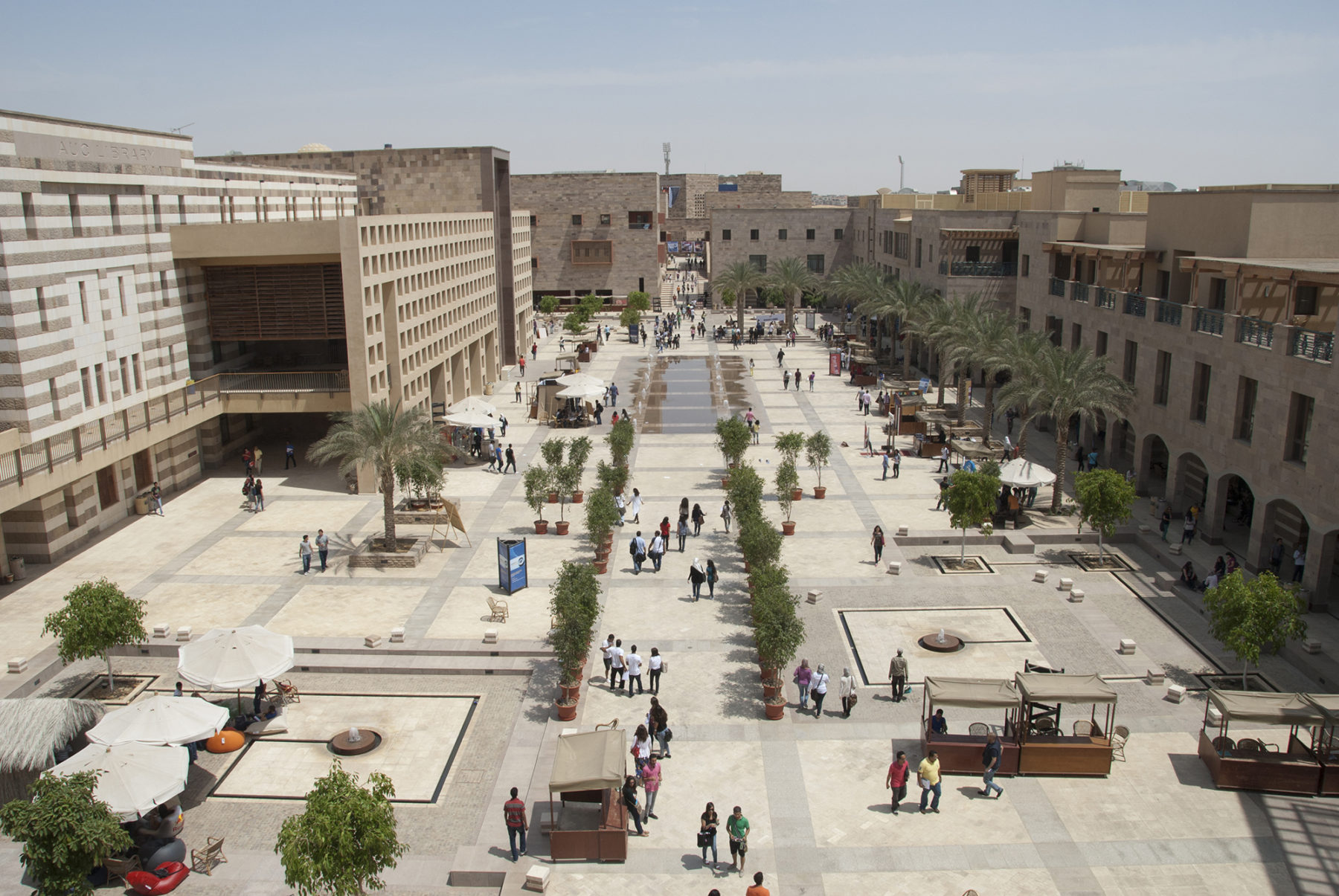
- History: AUC, founded in 1919, has played a pivotal role in Egypt’s education and cultural scene.
- Location: Tahrir Square, Downtown Cairo.
- Specialty: The AUC Art Gallery features contemporary art exhibitions and cultural events, promoting dialogue between artists and the community.
- Contact Information:
- Phone: +20 2 2615 1000
- Website: auc.edu.eg
4. The Cairo International Film Festival (CIFF)
The Cairo International Film Festival (CIFF), established in 1976, is one of the oldest and most prestigious film festivals in the Arab world. Held annually in Cairo, Egypt, the festival aims to promote international cinema and foster cultural exchange. CIFF displays multiple films from around the globe, including feature films, documentaries, and short films, focusing on established and emerging filmmakers.
The festival is known for its competitive sections, where films compete for various awards, including the Golden Pyramid Award for Best Film. CIFF also hosts workshops, masterclasses, and panel discussions featuring industry professionals, providing a platform for networking and learning.
As an important cultural event in the area, CIFF attracts filmmakers, critics, and cinephiles worldwide, contributing to developing the film industry in Egypt and the broader Arab region.
- History: Founded in 1976, CIFF is one of the oldest film festivals in the Arab world and has gained international acclaim.
- Location: Various venues across Cairo.
- Specialty: The festival displays many films from Egypt and around the globe, focusing on fostering Arab cinema.
- Contact Information:
- Phone: +20 2 2735 4697
- Website: ciff.org.eg
5. Al-Azhar Park
Al-Azhar Park is a beautifully landscaped urban park in the heart of Cairo, Egypt. Opened in 2005, it spans approximately 30 hectares. It is built on a historic site once a garbage dump, transforming it into a vibrant green space. The park offers stunning views of Cairo’s skyline, including the iconic mosques and buildings of the old city.
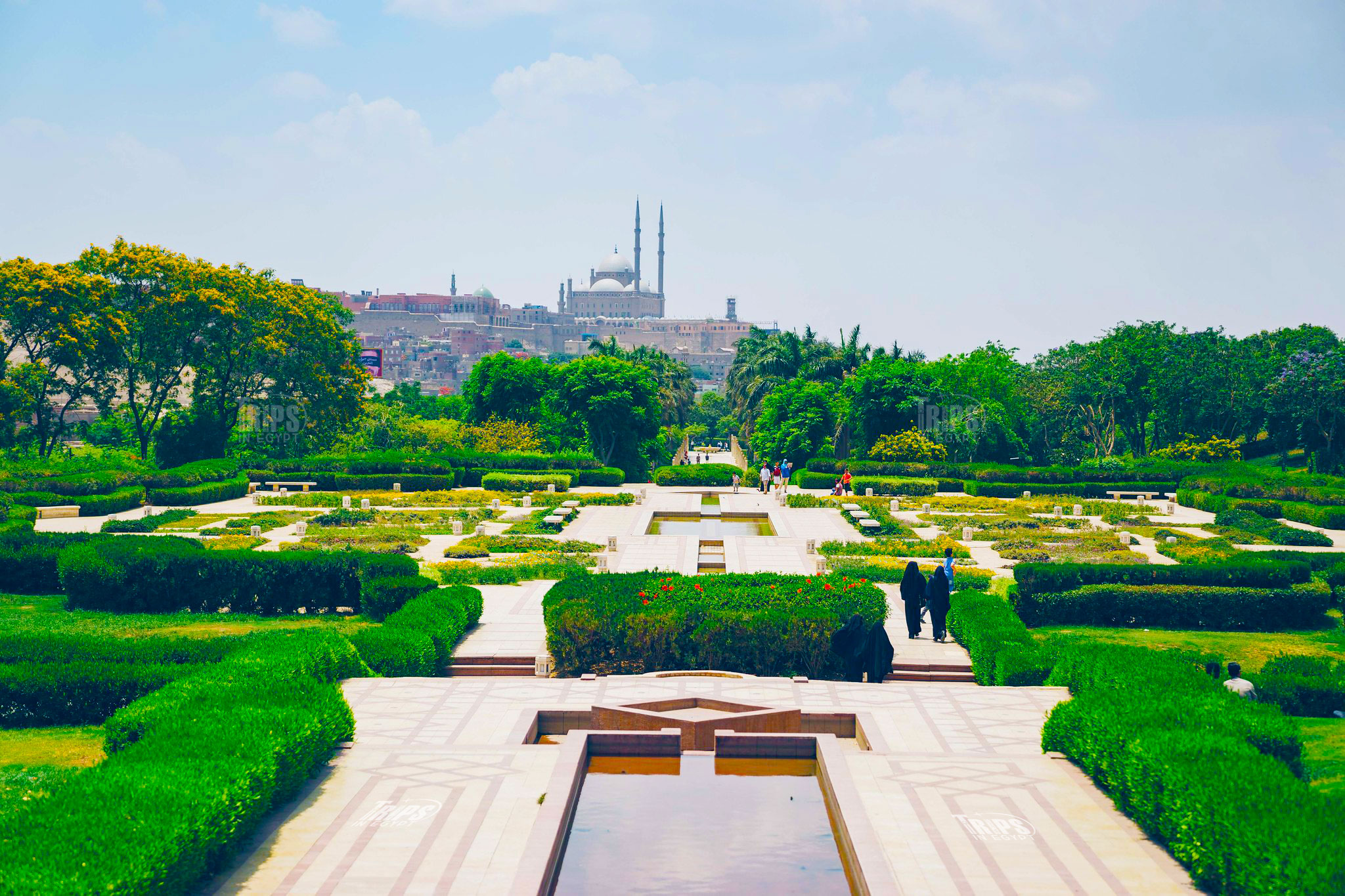
In addition to its natural beauty, Al-Azhar Park is a cultural hub, hosting events, concerts, and festivals during the year. It contains several dining options, cafes, and spaces for children to play, making it a popular destination for families and tourists. Overall, Al-Azhar Park is a testament to Cairo’s dedication to urban renewal and environmental sustainability, providing a serene retreat in a historically rich setting.
- History: Opened in 2005, Al-Azhar Park is a historic site that was once a garbage dump and has been altered into a beautiful public park.
- Location: Near Islamic Cairo, overlooking the historic mosques.
- Specialty: Hosts cultural events, concerts, and art exhibitions, making it a dynamic community gathering space.
- Contact Information:
- Phone: +20 2 2510 6666
- Website: alazharpark.com
6. The Cairo Jazz Club
Cairo Jazz Club, located in the lively neighborhood of Agouza, is a renowned live music venue and a cultural hotspot in Cairo, Egypt. Established in 2002, it has become a favorite location for music enthusiasts, offering a different lineup of performances that range from jazz and blues to rock, funk, and electronic music.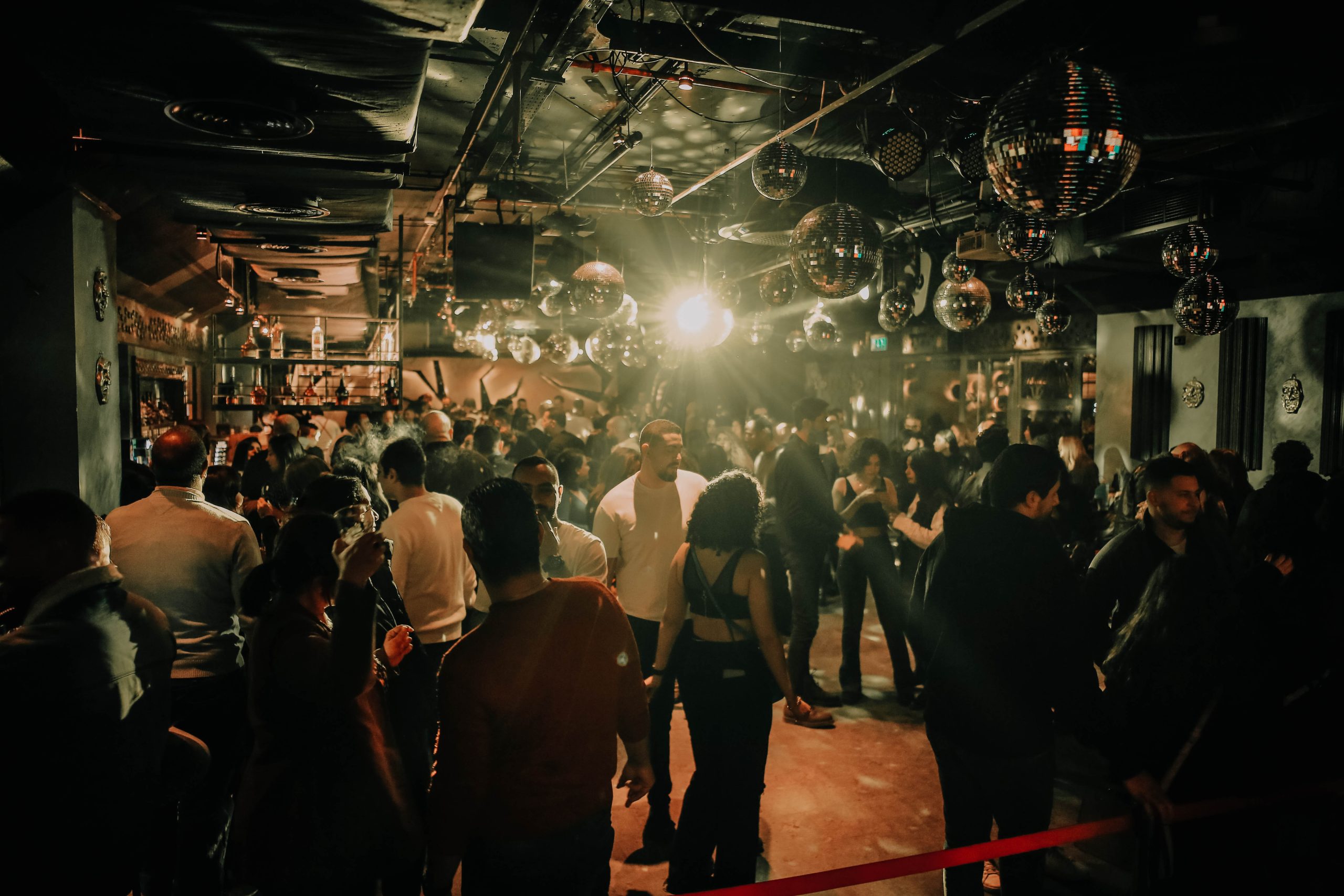
The venue has an intimate background with a cozy bar and seating arrangements that allow visitors to admire live music up close. Cairo Jazz Club regularly hosts local and international artists, fostering a community of musicians and music lovers. In addition to live performances, the club offers themed nights, jam sessions, and open mic events, encouraging participation from emerging talents.
With its eclectic ambiance, quality sound system, and commitment to promoting the arts, Cairo Jazz Club has a signifiant role in the city’s cultural scene. It is a famous spot for both locals and visitors seeking a lively and entertaining night out.
- History: Established in 2002, Cairo Jazz Club has become a cornerstone of the local music scene, featuring local and international artists.
- Location: Agouza, Cairo.
- Specialty: Offers live jazz, blues, and world music performances, along with a lively setting.
- Contact Information:
- Phone: +20 2 3345 9939
- Website: cairojazzclub.com
7. The National Museum of Egyptian Civilization (NMEC)
The National Museum of Egyptian Civilization (NMEC) is an important cultural institution in Fustat, Cairo, Egypt. Officially opened in April 2021, it is the first museum dedicated to displaying the comprehensive history of Egyptian civilization from prehistoric times to the present day. The museum houses an extensive collection of artifacts, with over 50,000 items on display, including mummies, pottery, textiles, and everyday objects that illustrate the rich tapestry of Egyptian culture.
One of the museum’s highlights is the Royal Mummies Hall, where visitors can view the mummies of ancient Egyptian kings and queens in a specially designed environment that enhances their historical significance. The museum also features themed galleries covering different aspects of Egyptian civilization, including religion, art, and daily life.
In addition to its exhibitions, NMEC offers educational programs, workshops, and cultural events to promote awareness and appreciation of Egypt’s heritage. With its modern design and innovative approach to displaying history, the National Museum of Egyptian Civilization is a crucial resource for locals and tourists, contributing to preserving and promoting Egypt’s rich cultural legacy.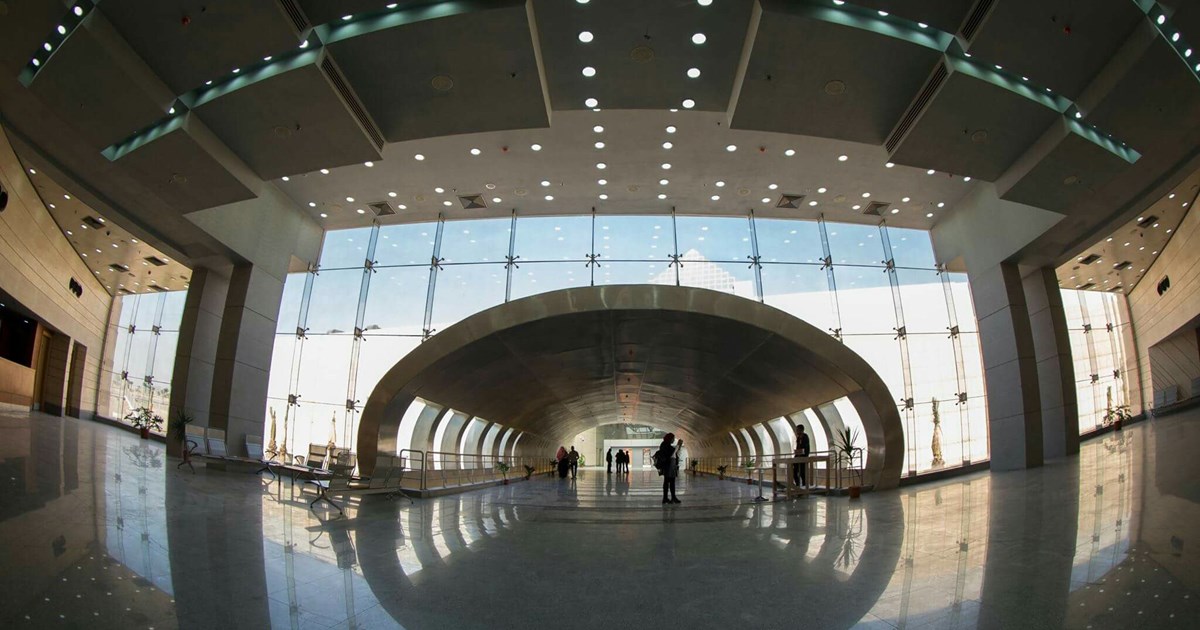
- History: Inaugurated in 2021, NMEC is the first museum dedicated to showcasing the history of Egyptian civilization from prehistoric to modern times.
- Location: Fustat, Cairo.
- Specialty: emphasizes on the artifacts of ancient Egypt, along with exhibitions on contemporary Egyptian culture and art.
- Contact Information:
- Phone: +20 2 2501 4900
- Website: nmec.gov.eg
8. Dar Al-Fouad Cultural Center
Dar Al-Fouad Cultural Center is a prominent cultural institution in the heart of Cairo, Egypt. Established in 1998, the center aims to promote arts and culture through various programs and events. It is a hub for artistic expression, offering a platform for local and international artists across many disciplines, including music, theater, visual arts, and literature.
The center hosts regular performances, art exhibitions, workshops, and lectures, fostering a vibrant cultural community. It is particularly famous for its devotion to nurturing young talent and giving opportunities for emerging artists to display their work.
In addition to its diverse programming, Dar Al-Fouad Cultural Center features contemporary facilities, including galleries, performance spaces, and meeting rooms, making it an excellent venue for cultural events and educational initiatives. Overall, the center plays a crucial role in enriching Cairo’s cultural landscape and improving the appreciation of the arts among the local population.
- History: This center has been a crucial venue for various cultural activities and artistic performances since its establishment.
- Location: 6th of October City, Greater Cairo.
- Specialty: Hosts theatrical performances, music concerts, and art exhibitions, often focusing on local talents.
- Contact Information:
- Phone: +20 2 3835 5070
9. The Egyptian National Folklore Institute
The Egyptian National Folklore Institute was founded in 1984 with the goal of conserving, researching, and disseminating Egypt’s rich folklore and cultural legacy. The venue, which is located in Cairo, is a vital resource for academics, researchers, and artists who are interested in the various traditions, customs, and artistic expressions of Egyptian civilization.
The institute emphasizs on storytelling, dance, music, crafts, and traditional customs, among other facets of folklore. In order to encourage Egypt’s folk arts and legacy, it carries out research, arranges workshops, and presents cultural events. The institute wants to guarantee that traditional forms of expression are saved for future generations by documenting and reviving them through its activities.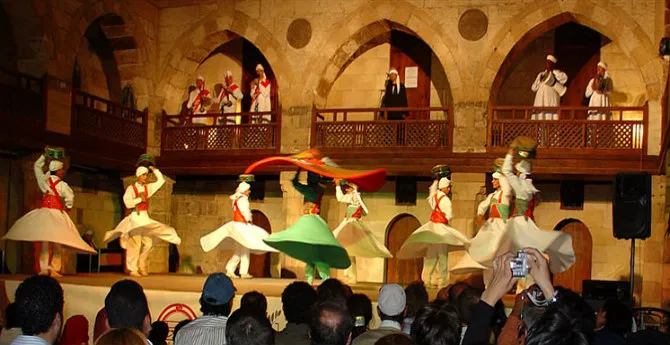
In addition to its research activities, the Egyptian National Folklore Institute collaborates with local and international organizations to encourage cultural exchange and understanding. By fostering a greater appreciation of Egyptian folklore, the institute has a crucial role in enriching the country’s cultural landscape and reinforcing national identity.
- History: Created in 1975, the institute is devoted to preserving and promoting Egypt’s diverse folklore traditions.
- Location: Downtown Cairo.
- Specialty: Offers workshops, performances, and exhibitions related to Egyptian folklore, including music, dance, and crafts.
- Contact Information:
- Phone: +20 2 2390 1360
10. Cairo’s Street Art Scene
In recent years, Cairo’s street art scene has emerged as a lively and dynamic expression of creativity and social commentary. Primarily flourishing after the 2011 Egyptian Revolution, the city’s walls have become canvases for artists who use graffiti and murals to address political issues, social justice, and cultural identity.
Neighborhoods such as Downtown Cairo and Zamalek are mainly famous for their colorful murals, often featuring powerful imagery and thought-provoking messages. Local and international artists contribute to this scene, transforming urban spaces into open-air galleries that engage the community and invite dialogue.
As a result, Cairo’s street art scene has gained recognition both locally and internationally. Through the lens of contemporary art, it highlights the city’s rich cultural heritage and the resilience of its people.
- History: Emerging in the early 2000s, street art in Cairo gained momentum during the 2011 revolution, becoming a canvas for political and social commentary.
- Location: Various locations throughout downtown Cairo.
- Specialty: Features murals and graffiti from local and international artists, changing urban spaces into dynamic galleries.
- Contact Information: Information is often available on local art blogs and social media.
Conclusion
Cairo’s cultural venues offer a rich tapestry of experiences, from traditional folklore to modern art and music. Whether you’re a local or a visitor, these spaces provide a window into the vibrant culture that defines this historic city.